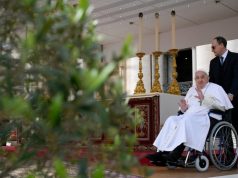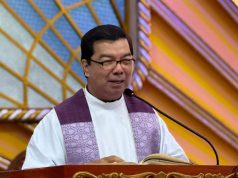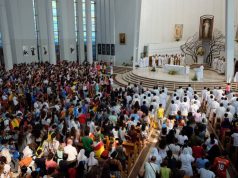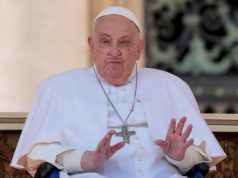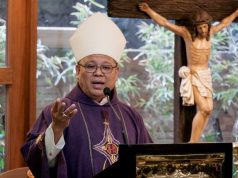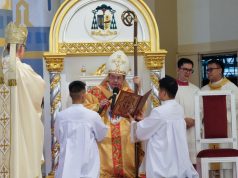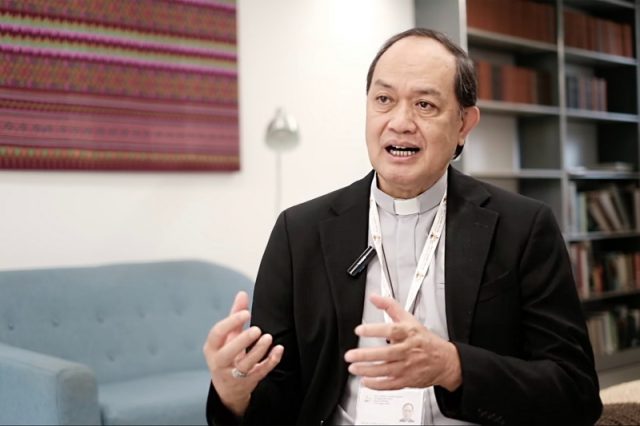
ROME— Cardinal-designate Pablo Virgilio David said the Synod on Synodality wrapped up its work with delegates being able to listen to each other despite perceived differences.
David said he felt the delegates raise their level of “trust on the Holy Spirit” during this year’s general assembly of the Synod of Bishops, compared with last year’s session when everyone seemed tense and on guard to the point of “editing” themselves.
“[This time, we felt] it’s okay, be candid about where you’re coming from … and [in that environment] we listen to each other. And don’t ever cancel out each other,” said the Kalookan prelate, who led the Philippine delegation to the synod as president of the Catholic Bishops’ Conference of the Philippines (CBCP).
He recalled last year, there was a tendency to “categorize each other as progressive, conservative, traditionalist, liberal, left, right, or center.”
In the “conversations in the spirit” method of listening and discerning adopted by the synod, such perceptions tended to reduce spontaneity and even censor the Holy Spirit, particularly when participants became defensive, he said.
Tradition, interculturality, inculturation
Addressing a synod flashpoint over balancing tradition and change, David, who will be made cardinal by Pope Francis in a Vatican consistory on Dec. 7, said that, “On the one hand, it’s important to hold on to the traditions of the Church.”
“But the authentic tradition. And, by that, we mean the apostolic tradition. We are anchored on no one else but Christ, in the Gospel, in apostolic tradition,” he said.
Vatican II, the council that modernized the Church, sought to return to this “healthy traditionalism.”
“At the same time, the healthy rootedness in Christian tradition makes you open to the changing historical context, the changing historical situations, and the cultural expressions of the faith. It’s plural, there’s diversity,” he said.
“You don’t behave like, you have the pure faith, and then you just give it to a culture, you will inculturate it. No, faith is always culturally packaged, as it were,” he added.
In the case of the Philippines, the Christian faith that arrived 500 years ago was Spanish in context, David said.
“And, of course, culture has limitations. That’s why we no longer talk about inculturation, but interculturality.”
‘The world is essentially good’
Rather than retreat, Christians should be ready to adapt to changes, said David.
“I think the message is, we take the word seriously, right? We don’t go anymore by that idea that the world is so bad, the world is so sinful,” he said.
“We might be committing blasphemy because God created this world and He saw that it was good,” he added.
But the world is evolving, David stressed.
“It’s unfolding. The different stages or periods, in history, will bring about new situations, new challenges, new questions, new conflicts. And we have to be ready to control them,” he said.




